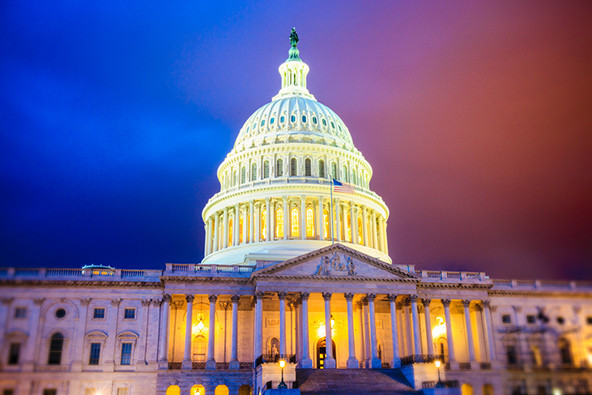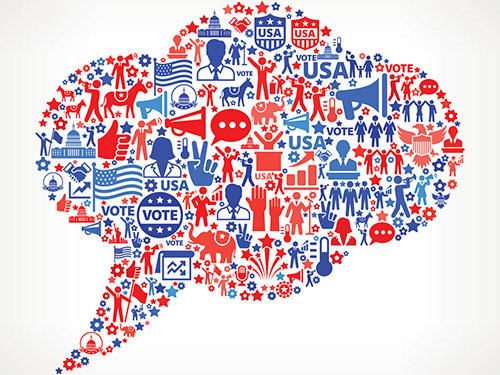 (Photo by iStock/uschools)
(Photo by iStock/uschools)
A mob of supporters of President Trump stormed the US Capitol, disrupting the certification of Joe Biden's election victory. Members of both political parties and commentators blamed Trump for the deadly chaos, which he encouraged and never forcefully denounced. Law enforcement eventually restored order, allowing the Senate to confirm Biden's win early the next morning.
With the immediate threat overcome, what is next for the American experiment? How will leaders of government, civil society, and business defend democracy against lies, inflammatory rhetoric, disinformation campaigns, and baseless attacks on the voting process? How will the nation overcome unprecedented levels of polarization that, along with many other issues, underlie the explosion of violence? Divides in the US electorate are nothing new, and many of SSIR's authors have tackled the issue in the past, offering insight that may help us through this period when differences are more pronounced than ever:

1. Philanthropy in a Time of Polarization
The days when major foundations could remain above the partisan fray, even as they were deeply engaged in advocating changes in public policy, are all but gone. The polarization of the US political scene is imposing new limits on how foundations can operate in that sphere. But it’s also revealing new ways in which they can influence the policy process.
2. More Seats at the Table
How the West Virginia Can’t Wait movement is using a gubernatorial race as a platform to raise up new leaders for the future, win or lose.
3. Tackling Political Polarization Through Philanthropy
Steps funders can take to tackle partisan gridlock and solve social problems at scale.
4. Real World Collaboration in Times of Polarization
The newly passed Workforce Innovation and Opportunity Act illustrates how organizations can find space to debate and successfully create cross-sector and bipartisan solutions.
5. Systems Change in a Polarized Country
A growing number of US foundations are adopting practices based on systems change to achieve their goals in the current political environment.
6. Civic Virtues and the Healing of Partisan Divides
In a time when many are drawing a line between communities and ideologies, the best line to draw is one that goes right through every human heart—a line that leads to five essential civic virtues.
7. How Political Donors Band Together
The ultrarich are teaming up to make politics more partisan. This article is open to subscribers only. Learn more about subscribing to SSIR.
8. How to Use Stories to Bring ‘Us’ and ‘Them’ Together
To build more inclusive movements, social advocacy organizations and activists need to create stories that can engage both familiar and new communities.
9. Reflections on the US Presidential Election and What’s Next for the Social Sector
Following a landmark national election in the United States, SSIR presents a series of reflections on the outcome and its effects on civil society and the social sector.
10. SSIR Guide to Influencing Public Policy
A list of SSIR articles to help nonprofits, advocates, and other civil society organizations build support for addressing the social issues brought to the fore by the 2020 US presidential election cycle.
Support SSIR’s coverage of cross-sector solutions to global challenges.
Help us further the reach of innovative ideas. Donate today.
Read more stories by SSIR Editors.

